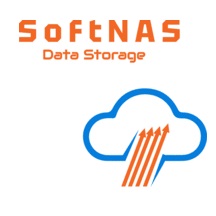The way we work has evolved, but data storage hasn’t changed substantially in over two decades except for the increasing amount of data being generated. With the right set of capabilities, cloud-based NAS offerings significantly shorten the amount of time it takes to migrate from an on-premises NAS to the cloud. With the capacity of cloud storage being “limitless”, NAS in the cloud allows you to expand or reduce the amount of data you manage without the need for forklifting hardware-based solutions. Today we will learn about the benefits of using a Cloud NAS (network attached storage) service.
Benefits of using Cloud NAS service:
Price/Performance Flexibility:
With the right Virtual cloud NAS, you have numerous options on what type of cloud storage to use. Low-performance Cloud Object storage can be used for use cases that don’t require high performance. But for a price, you can also satisfy HPC (high-performance computing) level SLAs. With the right combination of Virtual Machines running your Cloud NAS controller head with the right backend cloud storage, you can meet your storage requirements for just about any project.
Eliminate Legacy NAS Systems Refresh:
How do you predict exactly how much storage and performance from that storage you will need over the next 12 months? Do you ever have an unexpected project come up that requires more storage possibly at a different performance level? With legacy hardware NAS solutions, you usually get locked into a long-term contract, and if something changes, you incur the overhead and costs with a “forklift” upgrade. With a Cloud NAS, you are in control. You can create the storage you need when you need it, for as long as you need it without signing long-term contracts or renewals.
Built-in Data Resiliency:
Most cloud storage has data resiliency built-in by storing multiple copies of data on multiple disks. This resiliency does not replace the need for High Availability, SnapShots, and backups, but it is nice to have this level of resiliency built right into the storage used by your Cloud NAS filer.
Pay as You Go and Reduce Costs:
You only pay your cloud provider for the storage you need. With cloud storage becoming cheaper, you can instantly scale your cloud instances to best suit your needs. Or, you can even use tiered storage and push legacy data to low-cost storage and store frequently-accessed data in top-tiered storage to maintain performance for your “hot” data.
Use cases for a Cloud NAS (network attached storage) include:
SaaS-Enable Applications:
When looking to migrate applications from on-prem to Software-as-a-Service (SaaS) in the cloud, a common hurdle is that traditional applications typically do not support the native cloud storage interfaces. Rewriting your applications to support cloud storage requires application development and is usually complex and costly. For legacy applications that use standard file protocols, the right Cloud NAS can offer the expected file services and support for NFS, CIFS/SMB, iSCSI, and AFP protocols along with Active Directory integration support for your existing applications. Choosing a Cloud NAS with the features your application depends on is key.
New Apps and Proofs of Concept (POC):
A cloud NAS lets developers quickly stand up storage infrastructure for a new application or proof of concept project without any storage hardware. Developers can easily create a storage infrastructure with just a few clicks.
High-Performance Computing (HPC):
HPC requirements for Artificial Intelligence and Machine Learning are becoming standard. The power of the virtual machines you can create in the cloud today matches what you can get on-prem, but you need your storage to meet HPC SLAs also. The level of performance you can get from both compute and storage IOPs and throughput is increasing every day. With the right Cloud-based NAS, you can achieve 10s and even 100s of thousands of IOPS with massive throughput to cloud storage today. And as the performance of the cloud resources increases, you have the option to use this power when ready.
File Services for User File Systems:
The amount of file data being created daily can be overwhelming. When you add the need to keep copies of the data for compliance reasons for extended periods, it gets even worse. The right Cloud NAS can help satisfy the data access needs of your Linux, Windows, and Apple users by supporting the necessary file access protocol support. When you include the need for compliance copies of the files for possibly decades, you want a Cloud NAS that will help you automatically move the files to less expensive cloud storage for you. The right Cloud NAS can help you with both your increasing capacity needs and options to keep those compliance files on more cost-effective storage with low overhead on your part.
Backup and Archive Data:
The data your company collects is one of its most valuable assets in today’s world. You can’t afford to lose it. And when you need to access that data, you need to be able to access it quickly. Using cloud storage to store backup or archive data can be the key. A Cloud NAS with lower-cost cloud storage gives you an “endless” capacity to store backup and archive data. You have the flexibility to decide what level of SLA you need for the retrieval of archived data and match it to the price/performance requirements you have. If your SLA to retrieve archive data is days, you can use archive-level object storage. If you can’t wait days, choose higher-performance storage. And you want a Cloud NAS partner that can help get your data onto the archive storage with ease and low overhead.
DevOps and Development:
With cloud-based NAS, developers and DevOps can quickly stand up a new storage infrastructure needed for a new project and then tear it down when down (no long-term storage contract required). The storage needed is always available to be allocated at the performance required for the project.
When considering a Cloud NAS partner, it’s important to understand your current and potential future requirements. Most cloud NAS offerings include “table stakes” NAS functionality, but the devil can be in the details.
- Some Cloud NAS’s only offer limited support for the types of cloud storage that can be utilized.
- Some limit the capacity of storage that can be supported.
- Some may be fine for basic performance workloads but can be quickly overloaded as performance demands increase.
Top Cloud NAS solutions may offer solution extensions to help you solve problems beyond just storing data in the cloud. They may offer extensions that help you:
- Migrate your data from on-prem to the cloud
- Move cold data from more expensive higher performing storage to more cost-effective less performant storage
- Offer enterprise-class high-availability
- Data orchestration that can help you automate the movement and transformation of data
So when considering a Cloud NAS partner, take a look under the hood before you buy. Understand what type of mileage you will get with your selection and choose the right tool for the job from the beginning and save time and money in the long run.
We hope you found this post helpful as you learn more about cloud NAS. Leave a comment and let us know what we should write about next!





